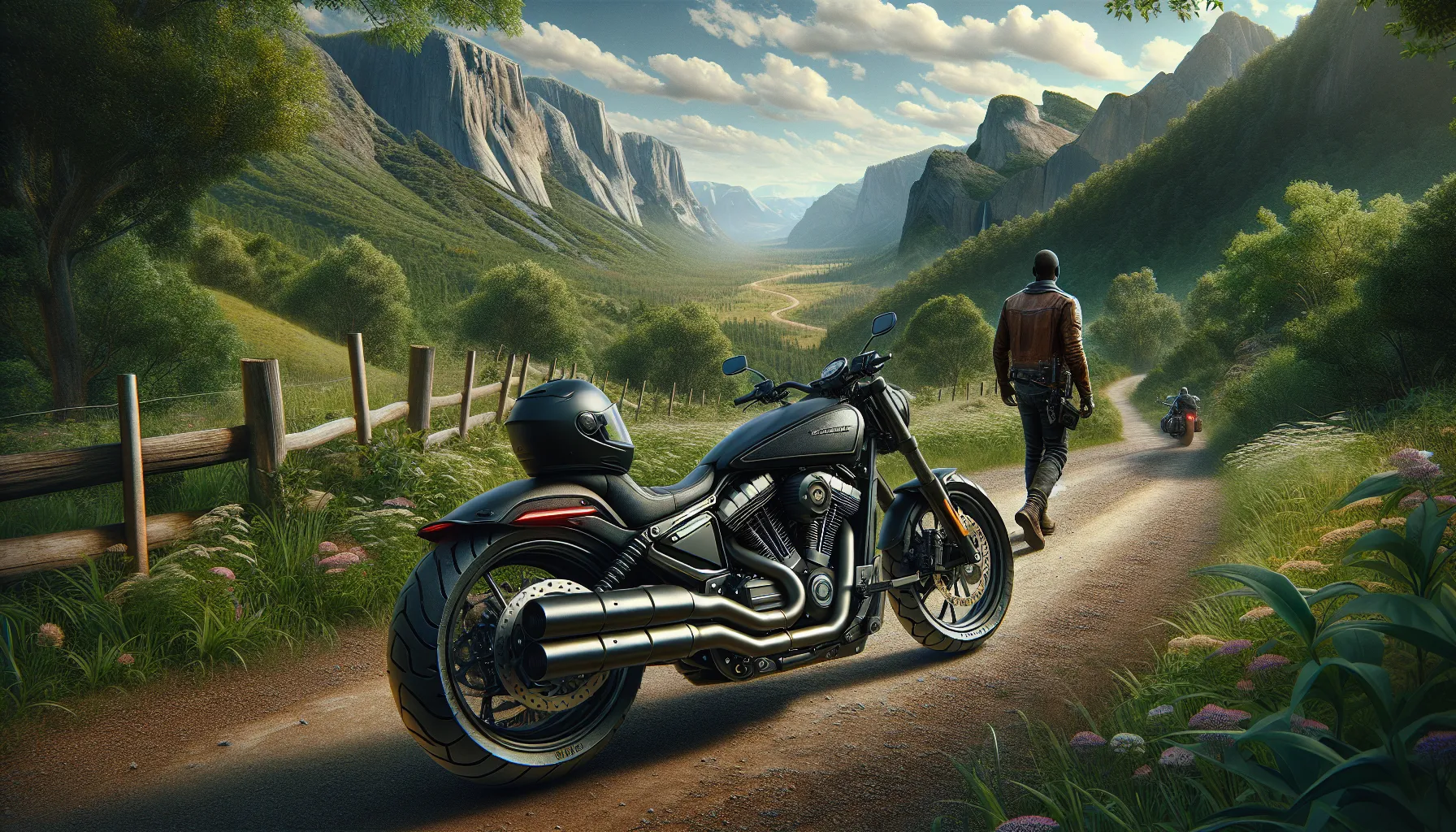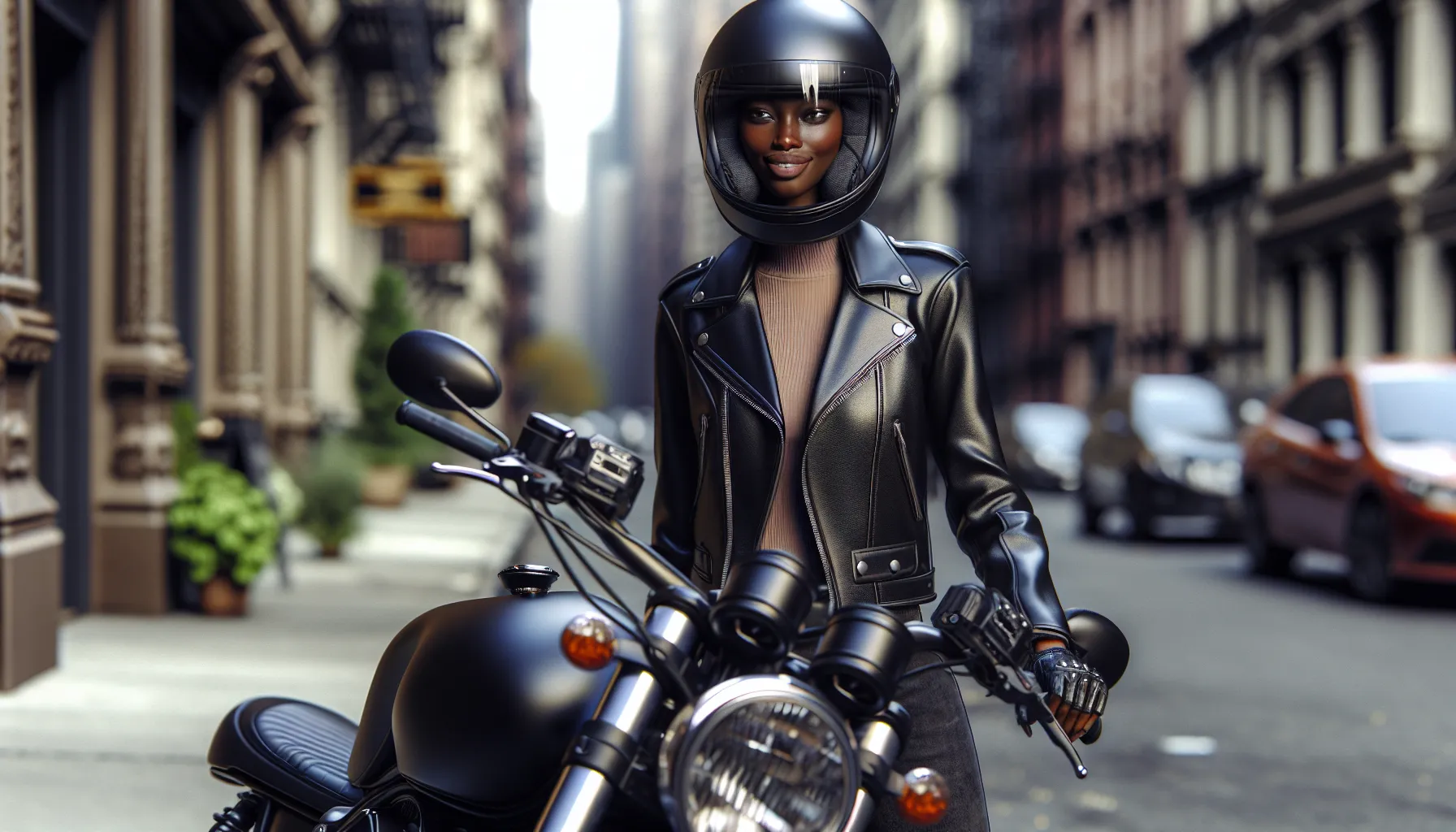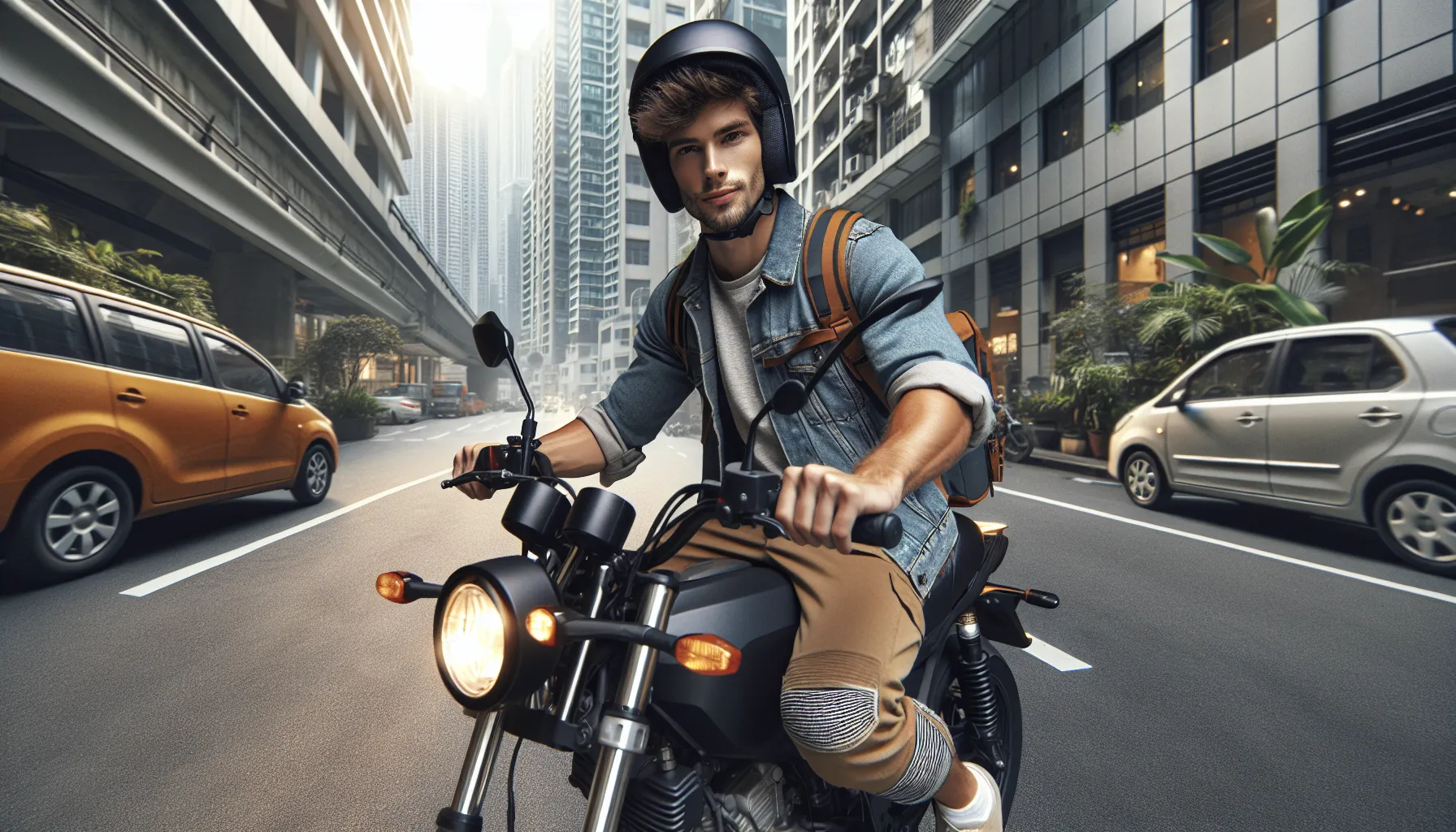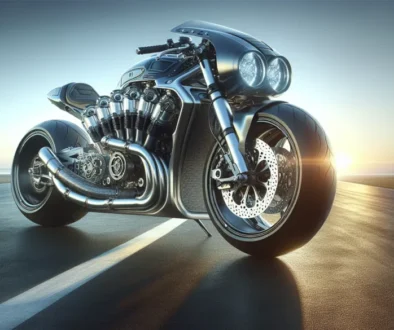Motorbike vs Motorcycle: Key Differences, Pros & Cons, and Which One is Right for You?
Key Takeaways
- “Motorbike” and “motorcycle” are often used interchangeably but can have subtle differences in meaning based on context, region, and cultural usage.
- Motorbikes are generally smaller, lighter, and more suited for city commuting, while motorcycles are larger, more powerful, and versatile for long-distance or performance-focused riding.
- In the US, “motorcycle” is the more common and formal term, whereas “motorbike” is used casually or informally, with broader usage in regions like the UK and Australia.
- Motorbikes are beginner-friendly, fuel-efficient, and affordable, but they offer less power and comfort compared to motorcycles.
- Motorcycles excel in power, versatility, and comfort for extended rides but require higher maintenance, advanced riding skills, and come at a higher cost.
- Choosing between a motorbike and a motorcycle depends on factors like budget, riding purpose, skill level, local regulations, and personal preferences.
I’ve always been fascinated by the world of two-wheelers, but one thing that often sparks debates is the difference between a motorbike and a motorcycle. Are they the same? Is it just a matter of preference or something deeper? These questions pop up more often than you’d think, especially among riders and enthusiasts.
Some people use the terms interchangeably, while others insist there’s a clear distinction. It’s easy to get caught up in the terminology, but understanding the nuances can be pretty fun—and even help you sound like a pro the next time the topic comes up. Whether you’re a seasoned rider or just curious, exploring this debate reveals more than just words; it uncovers a bit of history and culture too.
Motorbike Vs Motorcycle: What’s The Difference?
Although often used interchangeably, the terms “motorbike” and “motorcycle” can carry distinct connotations depending on context, location, and cultural usage. Both words refer to two-wheeled motorized vehicles, but their usage can vary in meaning and tone.
- Terminology Insights: In everyday conversation, “motorbike” often describes smaller, lighter, or less powerful two-wheelers, while “motorcycle” typically refers to larger, more powerful machines. For example, I might call a 125cc commuter bike a motorbike, but a 1000cc sportbike feels more fittingly labeled as a motorcycle.
- Regional Preferences: In the US, “motorcycle” dominates formal and legal descriptions, appearing on licensing documents, manufacturer labels, and insurance policies. “Motorbike” tends to appear less in American usage, often evoking a casual or informal tone. Conversely, in some parts of the UK or Australia, “motorbike” is commonly used in both formal and informal contexts.
- Cultural Contexts: Some riders treat “motorbike” as a playful or colloquial expression, associating it with leisure and recreation, while “motorcycle” may be perceived as a more technical or professional term. For instance, I frequently hear “motorbike” in casual chats among friends but see “motorcycle” at motorcycle clubs or technical forums.
Understanding how these terms are applied offers not just clarity but a glimpse into the cultural and linguistic nuances related to two-wheelers.
Definitions And Terminology

Clarifying the terms “motorbike” and “motorcycle” helps distinguish their usage and cultural significance. While similar, subtle differences set them apart.
What Is A Motorbike?
A motorbike is a two-wheeled motorized vehicle often associated with smaller, lighter builds. Riders frequently use “motorbike” in informal settings, especially when referring to leisure riding or casual usage. In regions like the UK and Australia, this term appears widely in both casual and formal contexts. Some motorbikes include scooters, mopeds, or compact motorcycles designed for ease of handling and urban environments.
What Is A Motorcycle?
A motorcycle is a two-wheeled motorized vehicle, typically heavier and more powerful than a motorbike. The term is prominent in formal contexts, particularly in the US, and is linked to professional use or technical specifications. Motorcycles range from cruising bikes to sport bikes, designed for performance and endurance. This term often conveys a sense of robustness and power, aligning with high-performance machines.
Key Differences Between Motorbikes And Motorcycles

Motorbikes and motorcycles, while fundamentally similar, have distinct differences in size, usage, and performance. These distinctions often influence their appeal and practicality for different riders.
Size And Design
Motorbikes are generally smaller and lighter, often featuring simpler designs. They include vehicles like scooters, mopeds, and lightweight street bikes. This makes them ideal for city commuting or short-distance travel.
Motorcycles have bulkier frames and more complex designs. They range from cruisers to sport bikes, offering larger bodywork and styles suited for long-distance rides or specific performance needs.
Usage And Purpose
Motorbikes are versatile and commonly used for casual or urban riding. Their smaller size and ease of maneuverability make them popular for navigating traffic or short recreational rides.
Motorcycles cater to a broader range of purposes, from professional touring to high-speed racing. Their robust build and features are ideal for enthusiasts seeking adventure or performance-oriented experiences.
Engine Performance
Motorbikes typically have smaller engines with lower displacement, often under 250cc. This allows for fuel efficiency and smoother handling at lower speeds.
Motorcycles house more powerful engines, with displacements ranging from 250cc to over 1,000cc. These engines deliver higher speed, acceleration, and overall performance, suiting riders looking for power and long-haul capabilities.
Pros And Cons Of Motorbikes

Motorbikes offer unique benefits and drawbacks, making them suitable for specific riders and scenarios. Here’s an overview of their advantages and disadvantages.
Advantages
- Affordability
Motorbikes typically cost less upfront than larger motorcycles. For example, many scooters and entry-level motorbikes range from $1,000 to $5,000, making them budget-friendly options. Operating costs, such as fuel and maintenance, also remain lower due to their smaller engines and simpler mechanics.
- Fuel Efficiency
Most motorbikes provide excellent fuel economy, with some models achieving over 90 miles per gallon (MPG). This efficiency reduces not only expenses but also environmental impact during daily commutes or city rides.
- Ease of Handling
Smaller and lighter frames make motorbikes easier to maneuver, especially in urban areas. Navigating through traffic or parking in tight spaces becomes less stressful for riders.
- Beginner-Friendly
Motorbikes, especially mopeds or scooters, are ideal for new riders. With lower power outputs, they help beginners gain confidence before moving on to more powerful machines.
- Urban Convenience
Designed for short-distance travel and city use, motorbikes excel in congested environments. Many riders find them efficient and practical for daily commuting or quick errands.
Disadvantages
- Limited Power
Motorbikes often lack the horsepower needed for high-speed scenarios or long highway journeys. Engines under 250cc may struggle to keep up with traffic on faster roads, which can be a drawback for some riders.
- Reduced Comfort
Compact designs prioritize efficiency over comfort. Long rides can feel uncomfortable on motorbikes due to smaller seats and limited suspension.
- Less Versatility
Unlike larger motorcycles, motorbikes have limited applications. For instance, they’re not ideal for off-road trails, long tours, or carrying heavy cargo.
- Lower Resale Value
Motorbikes tend to depreciate faster than motorcycles. Their affordability and niche use limit demand in the resale market.
- Safety Concerns
Smaller sizes and reduced visibility in traffic increase the risk of accidents. Additionally, limited power can complicate quick acceleration during emergencies on busy roads.
Pros And Cons Of Motorcycles
Motorcycles provide a distinct balance of power, performance, and versatility. They offer benefits for experienced riders but come with considerations for specific riding conditions.
Advantages
- Powerful Engines
Motorcycles are equipped with engines ranging from 250cc to over 1,000cc, allowing for top speeds and rapid acceleration. This makes them ideal for long-distance travel, highway rides, and high-performance uses like racing.
- Versatility Across Terrain
Motorcycles adapt to a variety of terrains and applications. From cruisers suited for touring to adventure bikes designed for off-road routes, they meet diverse riding needs.
- Built for Comfort
Touring motorcycles especially prioritize rider comfort with features like ergonomic seats, larger windshields, and advanced suspension systems. These enhancements make extended trips more enjoyable.
- Better Resale Value
Motorcycles, especially from premium brands, often retain higher resale value compared to smaller or less powerful motorbikes. This makes them a sound investment for many riders.
Disadvantages
- Higher Operating Costs
Motorcycles generally have higher purchase prices, insurance premiums, and maintenance expenses compared to motorbikes. Premium models add to these costs significantly.
- Complex Handling
The heavier frame and increased power can make motorcycles harder to maneuver for beginners or in congested urban areas. Riders need advanced skills for smooth operation.
- Fuel Consumption
Although efficient given their engine power, motorcycles consume more fuel per mile compared to smaller motorbikes, making them less economical for daily commuting.
- Safety Risks
Their larger size and weight make handling tricky in low-traction conditions like wet roads. Additionally, high engine power can increase the risk of accidents if mismanaged.
Which One Should You Choose?
Deciding between a motorbike and a motorcycle depends largely on your specific circumstances and riding goals. By evaluating key factors and aligning them with personal preferences, the choice becomes clearer.
Factors To Consider
- Budget
Your budget plays a central role. Motorbikes are typically cheaper to buy and maintain, often costing less in insurance and repairs. Motorcycles, with their larger engines and advanced features, tend to demand a higher financial commitment upfront and for ongoing expenses.
- Riding Purpose
The purpose behind your riding influences the decision. Motorbikes excel in city commutes and short trips. Their lightweight design suits urban environments. On the other hand, motorcycles handle long-distance travel and varied terrains with ease, making them ideal for touring or high-performance activities.
- Skill Level
For beginners, motorbikes offer easier handling and manageable power, making them perfect for building confidence. Motorcycles are better suited to experienced riders who can handle greater power and embrace performance-driven builds.
- Local Regulations
Local licensing laws and requirements may impact your decision. Some areas have specific training or licensing systems for larger motorcycles, while smaller motorbikes might fall under looser regulations.
- Lifestyle and Environment
Your daily living environment matters. For dense city streets, motorbikes provide agility and fuel efficiency. In rural or open-road conditions, motorcycles deliver comfort and power for extended rides.
Personal Preferences And Needs
Your individual preferences tie everything together. If you love relaxed rides with minimal maintenance, a motorbike might appeal more. If you crave adventure, speed, and versatility, motorcycles offer unmatched options. Pay attention to comfort needs, engine preference, and storage space based on your riding style. Whether for practicality or passion, the best choice aligns with what brings enjoyment and convenience into your riding experience.
Conclusion
At the end of the day, whether you lean toward a motorbike or a motorcycle, it’s all about what fits your lifestyle and riding goals. Both have their unique charm and purpose, and there’s no wrong choice as long as it brings you joy and suits your needs.
I think the beauty of this debate lies in the diversity of perspectives and preferences among riders. It’s not just about the machine you ride but the experiences and freedom it offers. So, pick what feels right for you, hit the road, and enjoy the ride!
Frequently Asked Questions
1. Are “motorbike” and “motorcycle” the same thing?
Both terms refer to two-wheeled motorized vehicles, but their meanings can vary based on context. “Motorbike” often describes smaller, lighter vehicles, while “motorcycle” refers to larger, more powerful machines. The distinction also depends on cultural and regional usage.
2. Which term is more common in the US: “motorbike” or “motorcycle”?
In the US, “motorcycle” is the preferred term in formal contexts, while “motorbike” is used more casually. However, both terms are understood by most people.
3. What is considered a motorbike?
A motorbike usually refers to smaller, lighter vehicles like scooters and mopeds. These are often used in urban settings due to their easy handling, fuel efficiency, and affordability.
4. What defines a motorcycle?
A motorcycle is typically a larger, heavier, and more powerful vehicle designed for long-distance travel, high-speed riding, or professional use. They encompass a wide variety of models, including cruisers and sport bikes.
5. How do motorbikes and motorcycles differ in performance?
Motorbikes generally have smaller engines below 250cc, making them fuel-efficient and beginner-friendly. Motorcycles, on the other hand, have engines ranging from 250cc to over 1,000cc, offering better performance for speed and versatility.
6. Are motorbikes cheaper than motorcycles?
Yes, motorbikes are often more affordable, both in terms of their purchase price and operating costs. They are a budget-friendly choice for city riders and beginners.
7. Are motorcycles better for long-distance travel?
Motorcycles are better suited for long-distance travel due to their larger engines, enhanced comfort features, and versatility across different terrains. They provide better stability and performance on extended rides.
8. Are motorbikes or motorcycles safer?
Motorbikes are generally less visible in traffic and may feel less stable on highways due to their smaller size. Meanwhile, motorcycles, despite being larger, carry higher power and speed, increasing risk factors. Safety depends more on the rider’s skill and caution.
9. Which is better for beginners: motorbikes or motorcycles?
Motorbikes are often a better choice for beginners because they are lighter, easier to handle, and have lower power, making them less intimidating for new riders.
10. How do I decide between a motorbike and a motorcycle?
Your choice depends on factors like budget, purpose, skill level, and commuting needs. Motorbikes suit urban commuting and affordability, while motorcycles are ideal for performance, long rides, and versatility. Evaluate your priorities before deciding.




